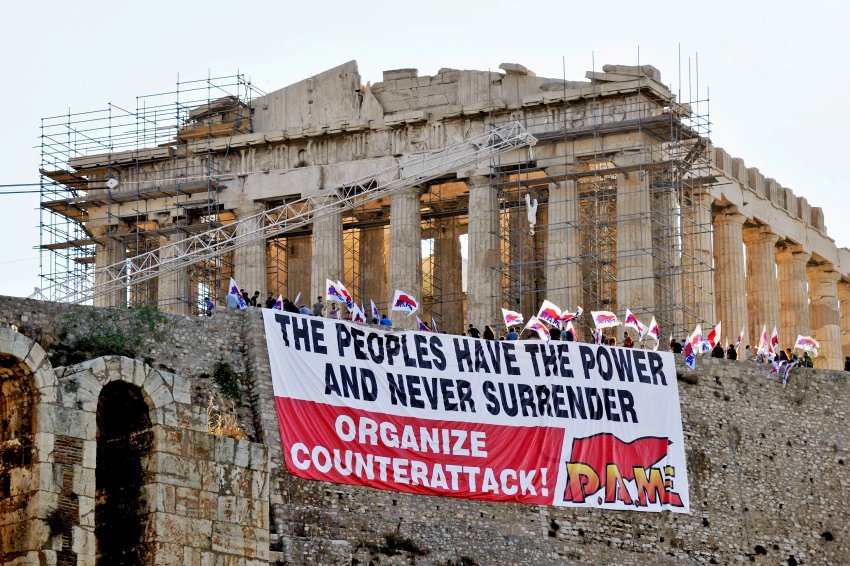
In un tagliente commento dall’eloquente titolo Europe’s return to Westphalia, apparso sul Financial Times il 23 giungo scorso, Philip Stephens così consclude:
“As the centre of global gravity shifts ever faster towards rising nations, the fragmentation of Europe will only accelerate the pace of its decline.
There is, though, an irony: the new powers with which Europe must now compete have never been much convinced by the Union’s postmodernism. Jealous of their sovereignty, the Chinas, Indias, Brazils and the rest much prefer the Westphalian system. Their model is 1648 rather than the Treaty of Rome.
So history may look back on the past 60 years as an interlude. The leaders at the Brussels summit this week may yet come up with a plan to save the euro. I am not sure they know how to save Europe’."
Il tema meriterebbe di essere approfondito, non fosse altro perché anche autorevoli fautori dell’unificazione europea, come Tommaso Padoa Schioppa, avevano a suo tempo incominciato a dubitare del fatto che il modello istituzionale europeo rappresentasse davvero il superamento dell’ordine westphaliano, basato sulla competizione fra gli Stati: “Tommaso Padoa-Schioppa says the markets attack the eurozone “because it is a post-Westphalian (post-nation-state) experiment, and people don’t believe in that” (in BEYOND MAASTRICHT: A NEW DEAL FOR THE EUROZONE, European Council on Foreign Relations).
E' paradossale leggere commenti come quello di Stephens provenienti da un paese come la Gran Bretagna, che notoriamente non ha svolto e non intende svolgere un ruolo particolarmente positivo nel promuovere il processo di unificazione politica europea, reclamare un maggior potere intrusivo del livello europeo rispetto alle politiche nazionali. Come non basta dire che bisogna politicizzare l’Europa o l’Unione europea senza spiegare come ciò potrebbe avvenire e a partire da chi e da che cosa si dovrebbe rilanciare l’Europa politica (è emblematico in proposito il discorso sullo “Stato dell'Unione europea” pronunciato dallo scrittore Geert Mak al Parlamento fiammingo di Bruxelles il 6 maggio scorso. Un genere di esercizio piuttosto confuso e contraddittorio sempre più spesso giocato anche da commentatori tedeschi, che rivendicano la necessità di un rafforzamento di un qualche potere centrale europeo senza porsi il problema di chiarire quale legittimità democratica questo potere dovrebbe avere, quali paesi dovrebbe coinvolgere, quale relazione dovrebbe esserci tra le istituzioni europee esistenti e quelle nuove da creare. Secondo Die spiegel, “Prior to the EU's expansion into Eastern Europe, a debate was held over the EU's future development, but it was based on the false alternative of "deepening or expansion." The real question should have been how strong the center must be to handle a larger periphery. Now the periphery dominates the center and dictates both its political agenda and the rhythm of its decision-making processes. Even if Europe manages to muddle its way through the euro crisis and the Greek collapse, this underlying problem isn't going to go away. In fact, such crises can repeat themselves at any time. A more or less orderly national bankruptcy for Greece would be merely a tiny step toward saving the euro. The key step is a political reconstitution of Europe, a reconstitution in which democratization would be a real option and would not pose the threat of decline and disintegration” (Democratization Can't Save Europe - The Need for a Centralization of Power, An Essay by Herfried Münkler, Spiegel online 8-07-2011).
Il fatto è che non ci può esere alcun definitivo superamento della logica westfaliana né un effettivo rilancio della democrazia europea senza l’affermazione della federazione, sia a livello europeo sia a livello mondiale. Questo è il nodo politico che gli europei sono chiamati a sciogliere in Europa se vogliono contribuire a scioglierlo anche a liello mondiale. Certo non basta invocare la federazione per risolvere i problemi che ci sono sul tappeto, come non basta dire “Signore, Signore” per entrare nel regno dei cieli. Bisogna operare per farla. Altrimenti l’indignazione e la protesta delle opinioni pubbliche si rivolgeranno sempre di più contro l’Europa e finiranno per favorire scelte pseudo-democratiche e pseudo-popolari a livello nazionali.

